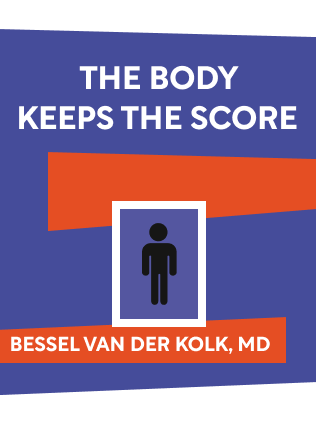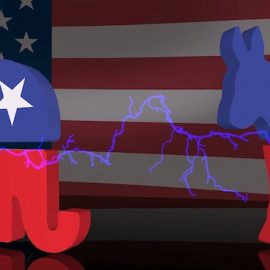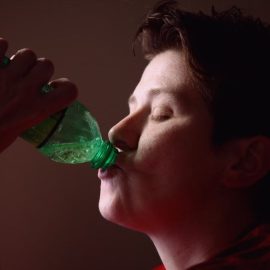

This article is an excerpt from the Shortform book guide to "The Body Keeps The Score" by Bessel van der Kolk. Shortform has the world's best summaries and analyses of books you should be reading.
Like this article? Sign up for a free trial here .
What is psychological trauma? How can we understand trauma and begin treating it?
Answering the question “what is psychological trauma” is complicated. There isn’t a one-size-fits-all approach to understanding trauma. But research does give us some insight into how trauma forms.
Read more about PTSD and answer the question “what is psychological trauma?”
What is Psychological Trauma? It Plagues Many People with Lifelong Effects
What is psychological trauma? We tend to think of trauma in its most extreme forms, as experienced by veterans and survivors of rape and intense tragedies like 9/11. But nearly everyone is likely to either be or know someone who is afflicted by trauma.
According to the Centers for Disease Control and Prevention, among Americans
- 1 in 5 was sexually molested as a child
- 1 in 4 had a parent physical abuse her to the point of leaving a mark
- 1 in 3 couples are physical violent toward one another
- 1 in 4 went through childhood with alcoholic relatives
- 1 in 8 saw her mother being physically abused
Given the statistics, many people are walking around with the scars of some form of trauma. Regardless of how many years or decades may have passed since the traumatic event(s), your brain and body continue to feel the effects. Trauma rewires the brain to cause people to be hypervigilant to threats and repeat the same mistakes, making it seem as if they’re unable to learn from experience.
Next in evaluating the question “what is psychological trauma” is how to treat it. As the fields of science and psychology have evolved, so have the understanding and treatment of trauma. There are three general approaches to treatment.
- Top-down: Talking, connecting with other people, opening up about your traumatic memories and their present-day effects.
- Medication: Using prescription drugs that inhibit trauma survivors’ overactive internal alarm systems, or affect the brain’s chemistry in some other way to alleviate the symptoms of trauma.
- Bottom-up: Seeking physical experiences that connect the body and mind to counteract feelings of helplessness, rage, and emotional collapse that plague trauma survivors.
In the following chapters, we’ll explore various causes of trauma, the ways in which it affects the brain, how developments in trauma and brain research have impacted treatment approaches, and what forms of treatment are available and recommended now.
Understanding Trauma Through Brain Anatomy
What is psychological trauma’s connection to the brain’s anatomy? The brain’s primary function is to ensure our survival. This entails:
- Signaling when your body needs essentials such as food, water, rest, shelter, safety, and sex.
- Interpreting the world around you to point you in the right direction to find and satisfy those essential needs.
- Creating the energy and initiating the actions to achieve those tasks.
- Warning you of dangers and opportunities you may encounter as you pursue those tasks.
- Adapting to act and respond to changing circumstances.
Issues arise when the brain can’t achieve these functions, whether signals go haywire, your brain can’t understand the world well enough to navigate it, it becomes paralyzed, or it prompts you to act in ways that don’t respond to your needs.
Your brain has three parts that work together to achieve its primary functions.
- The reptilian brain
- The limbic system, or the mammalian brain
- The neocortex
The Reptilian Brain
The reptilian brain is the most primitive part of your brain and it is the first to develop, while you are still in the womb. This is the part of the brain responsible for the things babies can do: breathe, eat, sleep, wake, cry, feel temperature, sense hunger, feel pain, urinate, and defecate.
This part of the brain sits in the brain stem, where the spinal cord meets the skull. Right above the brain stem is the hypothalamus, and together they manage energy, heart and lung functions, and the endocrine and immune systems to maintain all the body’s basic systems.
As basic as the primitive brain’s functions are, they can often be impacted by psychological issues such as trauma — resulting in sleep problems, loss of appetite, digestion issues, and sensitivities to touch and arousal.
So what is psychological trauma? The answer is complicated, but by talking more about trauma and its effects our understanding of it continues to grow.

———End of Preview———
Like what you just read? Read the rest of the world's best book summary and analysis of Bessel van der Kolk's "The Body Keeps The Score" at Shortform .
Here's what you'll find in our full The Body Keeps The Score summary :
- How your past trauma might change your brain and body
- What you can do to help your brain and body heal
- Why some trauma survivors can't recognize themselves in the mirror






